Detailed introduction of Transilvania University of Brasov:
Introduction and Overview
The Transilvania University of Brasov is the largest university in central Romania, located in Brasov. It offers undergraduate, master and doctoral programs in mechanical engineering, industrial engineering, computing, architecture, forestry, wood engineering, product design, nutrition and tourism, computer science, mathematics, economics, medicine, education, music, literature and linguistics, law, sociology and social work, psychology and many other fields.
History and establishment
In 1948, the foundation of higher education in Brasov was laid, when the Institute of Silviculture was established.
In 1949, the Institute of Mechanics was established, and in 1953, the Institute of Silviculture became the Institute of Forestry, and the two merged to form the Polytechnic of Brasov.
In 1960, the Faculty of Education (mathematics, physical chemistry, biology) in Brasov was established, and in 1969 the Department of Music was established.
In 1971, the Polytechnic Institute and the Faculty of Education merged to create the University of Brasov.
In 1991, at the request of the University Senate and the decision of the government and the Ministry of Education, the university was renamed the University of Transylvania Brasov.
School Strength
Faculty: With 696 full-time teaching staff and 66 researchers, the faculty is relatively large and provides professional teaching and guidance for students.
Disciplines and majors: There are 18 colleges, offering 100 undergraduate courses, 83 master's degree courses and 21 doctoral fields, covering engineering, science, humanities, social sciences, medicine, art and other disciplines, with a high degree of subject richness.
Research results: Conducting scientific research activities in many fields, especially in physics and other disciplines, some of which have a certain influence internationally.
Institutional nature
Public university, funded and managed by the Romanian government.
Educational philosophy
Emphasis on "Learn to be central", that is, learning is the core, focusing on cultivating students' comprehensive abilities and professional qualities, so that students can become core talents in their respective fields. We are committed to providing high-quality education, cultivating students' innovative thinking, critical thinking and practical ability, and encouraging students to actively participate in scientific research and practical activities to meet the needs of society.
Key laboratories and disciplines
Key laboratories: The school has multiple research centers and laboratories, such as some laboratories in the field of engineering, which provide good conditions for scientific research and practical teaching, but there is no detailed public information on specific key laboratories.
Advantageous disciplines: Physics is relatively prominent in international rankings. In the QS Emerging Europe and Central Asia rankings, the overall ranking is 156, and it ranks 289 in the best global universities in Europe.
Faculty
There are 18 colleges including the School of Mechanical Engineering, the School of Mathematics and Computer Science, the School of Engineering and Industrial Management, the School of Economics and Business Administration, the School of Materials Science and Engineering, the School of Psychology, the School of Electrical Engineering and Computer Science, the School of Physical Education, the School of Music, the School of Medicine, and the School of Law.
Ranking
It ranks around 1201 in the QS World University Rankings, around 880 in the US NEWS World University Rankings, and around 1201 in the TIMES World University Rankings.
It ranks 156th in the QS Emerging Europe and Central Asia region and 289th in the Best Global Universities in Europe.
Cost
Tuition fees: Tuition fees vary for different majors. Generally, the annual tuition fees for undergraduates are around 3,000-6,000 euros, and the tuition fees for masters and doctoral degrees are relatively higher.
Living expenses: The living expenses in Brasov are relatively low, and the monthly living expenses are about 500-800 euros, including accommodation, food, transportation and other expenses.
Campus environment
Campus layout: The campus is located in Brasov, which has a long history and is full of modern atmosphere. The campus has diverse architectural styles, integrating traditional and modern elements, and has modern teaching buildings, laboratory buildings, libraries, student dormitories, canteens and other facilities.
Academic atmosphere: With a strong academic atmosphere, the school often holds academic lectures, seminars and other activities, providing students with a broad learning and communication platform.
Cultural activities: Focusing on the comprehensive quality training of students, the school organizes a variety of campus cultural activities, such as concerts, sports competitions, art exhibitions, etc., which enrich students' extracurricular life.
-

Grigore T. Popa University of Medicine and Pharmacy
-
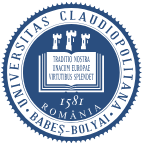
Babes-Bolyai University
-
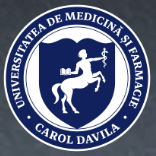
Carol Davila University of Medicine and Pharmacy
-
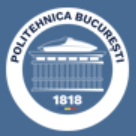
Politehnica University of Bucharest
-
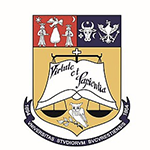
University of Bucharest
-

Technical University of Cluj-Napoca
-
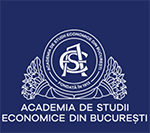
Bucharest Academy of Economic Studies
-

1st December 1918 University of Alba Iulia
-

West University of Timisoara
-
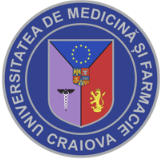
University of Medicine and Pharmacy of Craiova
-

Mesoamerican University
-

Istmo University
-

Mariano Galvez University of Guatemala
-

Regional University of Guatemala
-

Galileo University
-

Francisco Marroquín University
-

Rafael Landívar University
-

University of the Valley of Guatemala
-

University of San Carlos of Guatemala
-

Technological Institute of Tlaxcala Plateau
-

Golfo University
-

Technological University of South Sonora
-

Technological University of Huejotzingo
-

Tizimín Institute of Technology
-

Chilpancingo Institute of Technology

